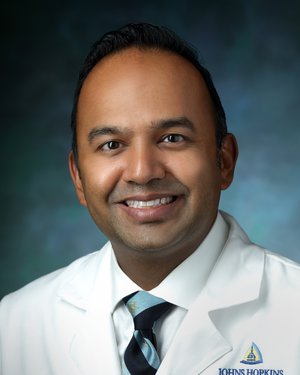Research Lab Results
-
Laboratory of Airway Immunity
We are interested in understanding how innate immune responses regulate lung health. Innate immunity involves ancient, and well-conserved mediators and their actions regulate the balance between homeostasis and pathogenesis. In the lungs, innate immunity play a critical role in response to environmental exposures such as allergen and ambient particulate matter. My lab focuses on how these exposures can promote aberrant mucosal responses that can drive the development of diseases like asthma.
Principal Investigator
Department
-
Gregory Diette Laboratory
The Gregory Diette Laboratory studies the epidemiology of lung diseases. Our focus is on asthma, chronic obstructive pulmonary disease (COPD) and environmental causes of lung disease, including allergens and particulate matter.
-
Meredith McCormack Lab
Research in the Meredith McCormack Lab deals primarily with pulmonary diseases, such as asthma and chronic obstructive pulmonary disease (COPD), and the role of environmental exposures in lung diseases. We have researched the factors that contribute to inner-city asthma, with a focus on how particulate matter air pollution impacts pulmonary function. We are also part of the LIBERATE clinical study, which is focused on patients who experience difficulty breathing and have been diagnosed with severe emphysema. We also have a longstanding interest in the effects of race/ethnicity, poverty and urbanization on nutrition and food allergies.
-
The Ramanathan Lab
Chronic rhinosinusitis (CRS) is a leading cause of morbidity globally and is the single most common self-reported chronic health condition and accounts for billions of dollars in health care costs and lost work days annually. Exposure to air pollutants is thought to be a critical modifier of CRS susceptibility. Despite marked reductions in air pollution levels in the United States, the fine particulate component of air pollution (PM2.5) and ultrafine pollutants secondary to traffic continue to remain a recalcitrant issue globally and in the United States. The Ramanathan Lab focuses on studying the role of air pollution (PM2.5) in CRS. In collaboration with scientists at the Bloomberg School of Public Health, we have utilized a state of the art air pollution exposure system to develop a novel mouse model of air pollution induced rhinosinusitis that mimics many of the features of CRS in humans. Our lab uses transgenic mouse models and novel immunologic/genomic techniques to study the mechanisms by which PM2.5 causes eosinophilic inflammation and sinonasal epithelial barrier dysfunction. We are also interested in the role of the antioxidant transcription factor, Nrf2, which has shown to stabilize the epithelial barrier and reduce eosinophilia in PM induced rhinosinusitis as a potential therapeutic target.
Principal Investigator
Department
